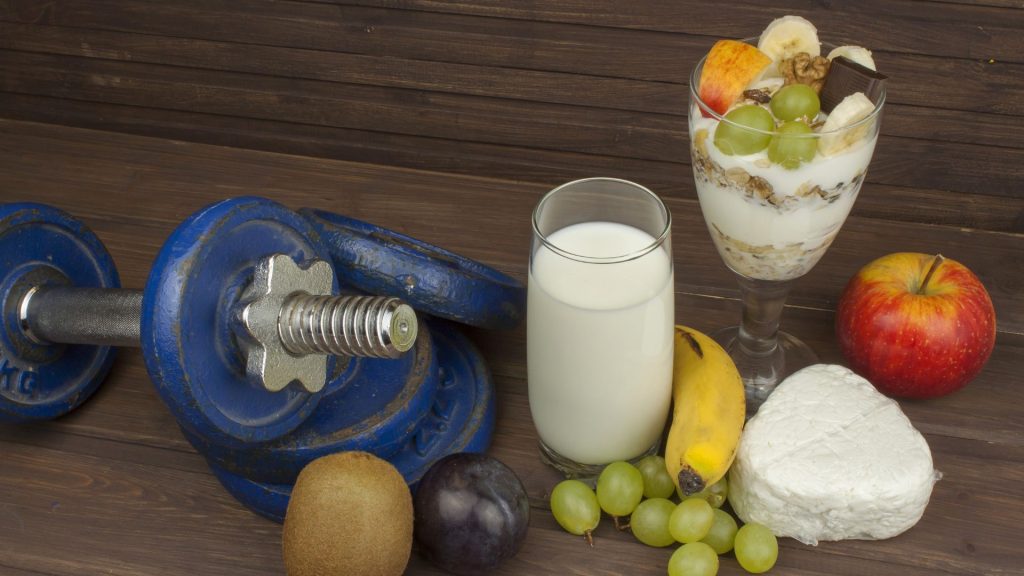Muscle-Building Foods
Introduction
Muscle-building nutrition is a widely discussed topic in the fitness industry, yet it is also plagued by misinformation. Many myths surrounding muscle-building foods prevent people from making informed dietary choices. Some believe that only high-protein foods build muscle, while others assume supplements are necessary for gains. In this article, we will debunk some of the most common myths about muscle-building foods and shed light on evidence-based nutrition strategies for muscle growth.
Myth 1: Only Protein Builds Muscle
The Truth:
While protein is crucial for muscle repair and growth, it is not the only macronutrient involved in the process. Carbohydrates and fats also play essential roles in muscle development.
Why This Is a Myth:
Many believe that increasing protein intake alone will lead to muscle gains. However, without adequate calories from carbs and healthy fats, the body lacks the energy to train effectively and recover properly.
What You Should Do:
- Balance macronutrients: Include complex carbohydrates (e.g., whole grains, fruits, and vegetables) to fuel workouts and recovery.
- Incorporate healthy fats: Omega-3 fatty acids from fish, nuts, and seeds help reduce inflammation and support muscle recovery.
Myth 2: You Need to Eat Meat to Gain Muscle
The Truth:
Plant-based diets can also support muscle growth when they provide adequate protein and essential amino acids.
Why This Is a Myth:
Many people assume that plant-based proteins are inferior to animal-based proteins. While some plant sources lack specific essential amino acids, consuming a variety of plant-based proteins ensures complete nutrition.
What You Should Do:
- Choose complete plant-based proteins: Foods like quinoa, soy, and hemp seeds contain all essential amino acids.
- Combine protein sources: Pair foods like rice and beans or lentils and whole grains to create a complete protein profile.
- Supplement if needed: Plant-based protein powders can help bridge any dietary gaps.
Myth 3: Eating More Protein Automatically Leads to More Muscle
The Truth:
Consuming excessive protein does not automatically translate to muscle gains; muscle growth depends on proper training and total caloric intake.
Why This Is a Myth:
The body has a limit on how much protein it can use for muscle synthesis. Excess protein is either stored as fat or excreted, making overconsumption unnecessary and potentially wasteful.
What You Should Do:
- Follow recommended protein intake: Aim for 1.2 to 2.2 grams of protein per kilogram of body weight, depending on activity level.
- Space protein intake throughout the day: Instead of one large meal, distribute protein consumption across meals to optimize muscle synthesis.
Myth 4: Supplements Are Necessary for Muscle Growth
The Truth:
Whole foods provide all the essential nutrients needed for muscle growth. Supplements can be helpful but are not mandatory.
Why This Is a Myth:
Marketing often promotes supplements as essential for muscle gain, leading people to believe they cannot build muscle without protein powders, BCAAs, or creatine.
What You Should Do:
- Prioritize whole foods: Lean meats, dairy, eggs, legumes, nuts, and seeds provide essential nutrients for muscle growth.
- Use supplements wisely: If dietary intake is insufficient, supplements like whey protein or creatine can be beneficial, but they should not replace real food.
Myth 5: Carbs Should Be Avoided for Muscle Growth
The Truth:
Carbohydrates are essential for energy, muscle recovery, and performance.
Why This Is a Myth:
Low-carb diets are often associated with fat loss, leading some to believe that reducing carbs is necessary for muscle gain. However, without sufficient carbohydrates, the body lacks energy to perform high-intensity workouts.
What You Should Do:
- Prioritize complex carbs: Whole grains, fruits, and vegetables provide sustained energy and essential nutrients.
- Time carb intake effectively: Consuming carbs before and after workouts helps optimize performance and recovery.
Myth 6: Fat Should Be Eliminated from a Muscle-Building Diet
The Truth:
Healthy fats are essential for hormone production, muscle recovery, and overall health.
Why This Is a Myth:
Some believe that dietary fat leads to body fat gain, but eliminating fats can negatively impact testosterone levels and muscle growth.
What You Should Do:
- Include healthy fats: Avocados, nuts, seeds, and olive oil provide essential fatty acids for muscle function.
- Avoid trans fats and processed fats: Focus on natural sources of fat rather than fried or processed foods.
Conclusion
Building muscle requires a well-balanced diet, not just excessive protein intake or reliance on supplements. By understanding the role of all macronutrients, prioritizing whole foods, and debunking common myths, you can optimize your muscle-building efforts effectively. Instead of following misinformation, focus on scientifically backed nutrition strategies to fuel your body, enhance recovery, and maximize muscle growth.




Leave a Reply